So I’ve been on a bit of a language kick lately, having finally finished the French lessons on Duolingo (check out a review here), and following it up with a million French language conversational meetups in the area. Duolingo has been making headlines all over the place, but several other language-learning services exist (sometimes free, sometimes not), for those looking for an alternative.
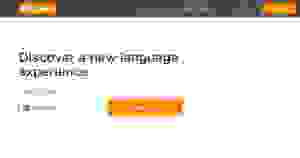
One of them is Babbel, which is a paid service, costing anywhere from $6.95 to $12.95 per month (per language), with costs going down if you pay for several months at once. It has a 20-day money-back guarantee, several free introductory lessons, and over a dozen languages.
I used it to review my rudimentary Russian skills, which is a language Duolingo does not currently offer (though it will be added in late 2015), and also to evaluate it as a paid alternative that might potentially address some of Duolingo’s explanatory shortcomings. As is the case with anything that costs money, it has to be better than the free alternative. And not just better…but at least $6.95 per month better.
And after going through the entirety of the Russian lessons available on the site, I can definitively say:
It starts out rrrrrrreally well…and then goes tragically downhill shortly thereafter.
Sigh.
Things Babbel does amazingly well
I was really impressed with Babbel at first. Everything about it (in the beginning) is superior to Duolingo. If you’re frustrated with Duolingo’s translation-heavy and explanation-light methods, Babbel will be a wonderful breath of fresh air, because:
1) Babbel actually teaches you things
Instead of just throwing endless exercises at you, Babbel provides in-depth explanations of grammatical concepts; in the case of Russian specifically, this includes things like cases, verb conjugation, adjective/noun gender/number/case agreement, and other nuances, as well as a thorough introduction to the Cyrillic alphabet, and accompanying keyboard techniques.
After introducing you to a new concept, Babbel presents you with relevant exercises, often consisting of single-letter fill-in-the-blank lessons focusing on this new concept exclusively:
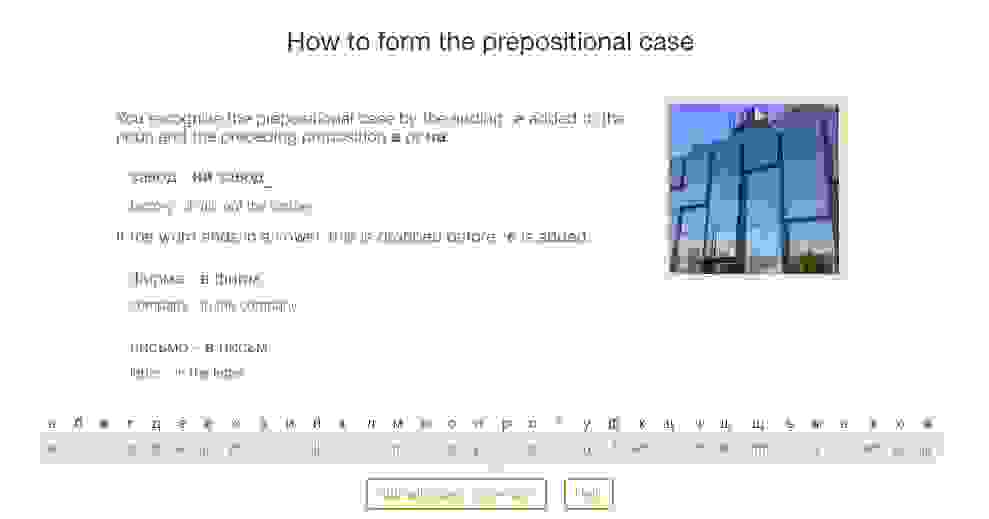
After that, you’ll move on to complete words, then complete sentences.
It’s a million times faster than the Duolingo method of “just throw exercises at them until they get it.” With Duolingo, I had to Google things I couldn’t understand, because Duolingo simply wouldn’t explain them at all.
Babbel actually guides you through these concepts, with no supplementary materials needed. Not only is this far less annoying, but it’s also significantly faster, since you won’t waste time stumbling through inscrutable grammatical rules without understanding what’s going on, in a trial-and-error hamster wheel of inefficiency.
Which leads me to another advantage of Babbel’s methods:
2) Vastly superior iteration techniques
One of the main problems with Duolingo is that it is endlessly repetitive, and not in a particularly efficient way. Repetition is important, but Duolingo often asks you to translate complete sentences (often of a dozen words or more), with perhaps only one or two new words within the sentence that you actually need to practice…so you spend a lot of time typing, but not much time learning.
Verb conjugation is one of the more problematic areas, especially in Romance languages, which often have dozens of different ways to conjugate a single verb (English examples being I go, he goes, I went, I have gone, and so on), but in many languages, it’s often just a few letters at the end of each word that change.
This is a perfect example of how translating full sentences is a huge waste of time, since you’re usually working on memorizing just the last few letters of a single word. So…why not practice just those letters?
Like this:
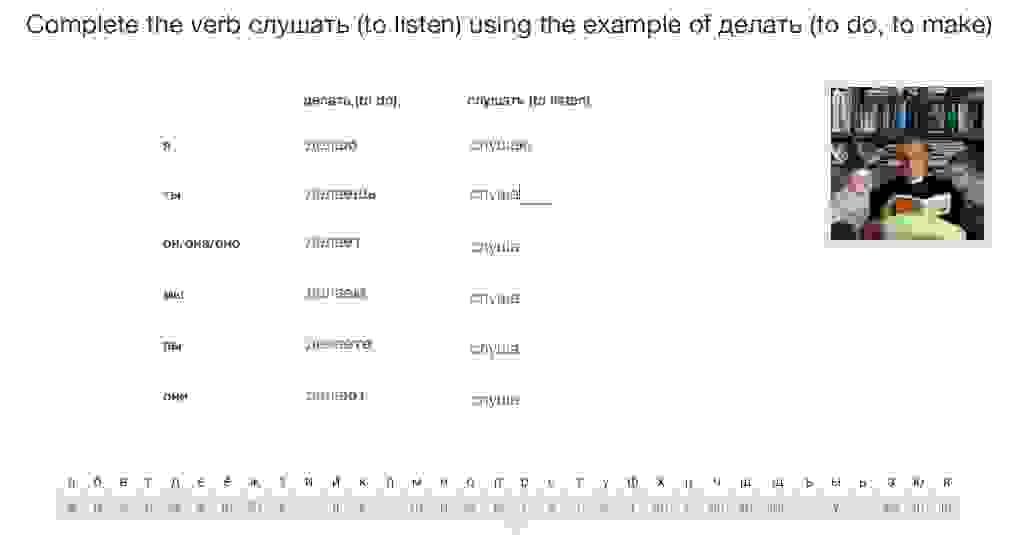
With Babbel, you’ll often have exercises that focus just on the relevant letters at the end of the verb, which is the only part you need to practice, and thus a more efficient form of repetition. After that, exercises get longer, such as those that ask you to write the entire word:
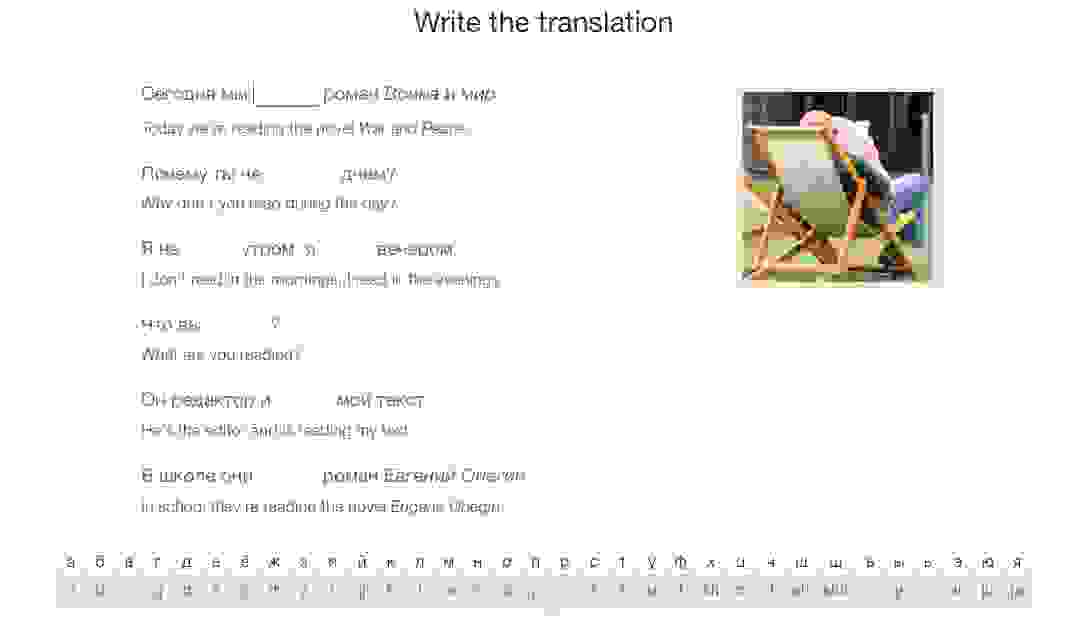
This still provides rapid repetition of relevant information (verb conjugation, in this example), while still providing reading and listening practice for a complete sentence, because you can see it, and it’ll read it out loud to you.
It’s soooooooo much faster. By incorporating these hyper-focused, fill-in-the-blank exercises before moving on to complete sentences, Babbel rapidly reiterates on the new concept, giving you lots of practice in just a few seconds, instead of requiring you to type out endless complete sentences, the way Duolingo does.
You’re also just typing a whole lot less. Quite a few times I had to stop using Duolingo because my hands got tired. This never happened with Babbel, and if you’re in a hurry to make rapid progress, this is a very big deal.
3) Beginner vocabulary is at the beginning
I shouldn’t really have to mention this one, and I’m only doing so because Duolingo did such a weird job with it. Babbel actually includes beginner phrases at the beginning. You know, like they should?
I don’t think I learned how to ask “where’s the toilet” with Duolingo until I was about 6 months in. Basic phrases like “hello, what’s your name, where are you from, what do you do, how much does it cost,” and so forth are sprinkled throughout the lessons, instead of being front-loaded in the beginning. This means that new speakers can use Duolingo for a long time before learning much of anything practical.
It’s not easy to do this correctly (and Babbel had a lot of basic words hidden throughout later exercises as well), but at least they start out with “hello, how are you, good, thanks, where are you from,” and so on. It’s not perfect (and nothing could be, because you have to learn a lot in order to have a worthwhile conversation), but at least it has some of those “survival phrases” up front.
4) Good scope
By the time I had finished with Babbel’s Russian lessons, I had been presented with 2,447 words. I have heard on more than one occasion that 2,000 words is the conversational sweet spot, allowing you to communicate with native speakers without significant trouble, but not enough to win you any poetry awards.
This was more than Duolingo (which taught 1,874 words in French, though it looks like they’ve added more since then), but I think the discrepancy is largely due to Babbel including a lot of specialized vocabulary, like the word for “hardware.” I think the intention is so that professionals can use Babbel as a potential job-training program, so they can learn industry-specific vocabulary if they’re moving to another country for work. For most people, these exercises will be unnecessary, but it’s nice to see them included for the specific users who need it.
Things Babbel does amazingly poorly
Sadly, this amazingly strong start came to an abrupt end in an extraordinarily short amount of time. Every single advantage of Babbel completely evaporated after the beginner lessons.
I expect this may have happened because the Russian lessons simply aren’t as extensive as some of the other languages offered by Babbel, as Russian isn’t in demand in the way Spanish might be, and thus is more like a beta test version, instead of a real language course. I checked the scope of the German lessons and confirmed that, yes, Russian is simply not as extensive at the moment as others.
So should they have charged me the same price for incomplete lessons as they charge for complete ones?
Nope!
So here we are.
1) All the explanations disappear after the first few lessons
Remember all those incredibly helpful explanations of grammatical concepts that I mentioned distinguish Babbel from Duolingo and are extraordinary useful and time-saving and so on and so forth?
They disappear, fast. After the lessons labelled “Beginner’s Courses,” all those explanations are gone. What do we have instead?
Flash cards.
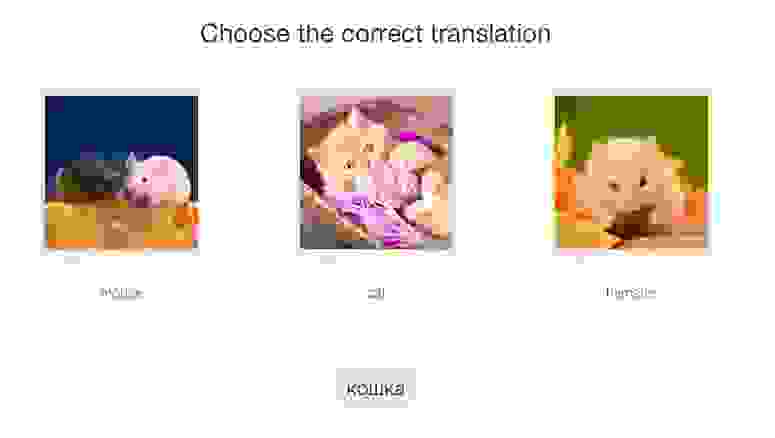
That. Is. All.
Seriously.
After the beginners’ courses, Babbel’s lessons (in Russian, anyway) consists exclusively of vocabulary drills, most often just one word at a time.
Occasionally they’ll have lengthier sentences, like these:
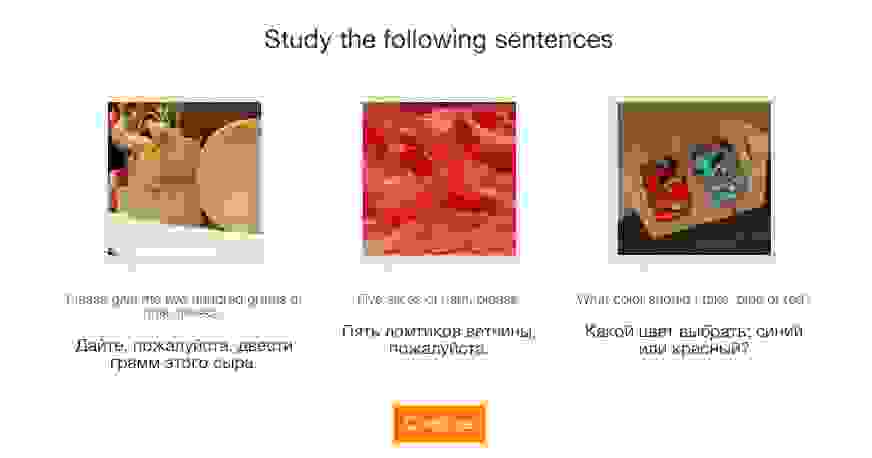
But there’s no further explanation of any grammatical concept, colloquial nuance, usage details…nothing. Just flash cards. Nothing else.
There’s absolutely zero further practice with verb conjugation, cases, adjective/noun agreement, or anything else, except for those full-sentence flash cards which make use of just one form at a time, which isn’t particularly conducive to reviewing all the other ones. By the time you’re done, you’ll probably have forgotten half of them.
I should point out that these vocabulary drills form the majority of Babbel’s Russian lessons at the moment, and while I’ve seen other languages that have far more extensive courses, there’s simply no reason they should have sold this course as a complete product alongside the others. Everything that was good about Babbel disappeared after the beginner lessons, and it consisted of nothing but flash-card-style vocabulary drills from there on out.
This is also true of the review exercises. Babbel keeps track of which words you need to practice, but handles this by giving you individual words in flash card form, meaning you don’t get full-sentence practice unless you repeat old lessons, and it’s kind of hard to remember which lessons would be good to practice again (whereas Duolingo helpfully indicates this by color-coding).
2) Lessons are simply incomplete
Quite a few important concepts were simply left out. The word for “hundred,” for example, is in there, but only in one of those pre-constructed sentences within a flash-card-style vocabulary drill, in the form of the word “two hundred.” As far as I can recall, this is the only time it tells you how to say that word. This is especially important in Russian, because the word changes based on how many hundreds there are, which they also don’t bother telling you. If you have to buy something for one hundred rubles, too bad.
It also presents you with both the perfect and imperfect forms of each verb, which is rather important in Russian, because you need to know which is which, and which one to use in which situation. They also don’t bother explaining the difference between perfect and imperfect verbs, which means it’s all just a complete waste of time anyway. Why bother asking people to memorize various forms of each verb if you don’t bother telling people what they mean?!
This is all just insane. Like…rrrrrrrreally insane. And it came as a major disappointment, especially after seeing how incredibly good Babbel was in the beginning.
3) Basic words are stuck in specialized vocabulary lessons
Remember how I said Babbel includes specialized vocabulary for industry-specific topics, so professionals can learn those particular words that might be necessary for communicating with international clients?
Those are also the lessons that include really basic vocabulary, like the word for “heavy.” You’d think the highly-specialized lessons should consist only of highly specialized words, so users can skip them if they’re not immediately relevant, but you have to go through them all, just to learn simple terms…while also spending extra time learning unnecessary words like “lawnmower.”
4) Minor quibbles
I won’t spend too much time on these, but I have a couple other minor issues:
I found Babbel’s progress indicators to be less immediately visible than Duolingo’s, which allows you to see exactly where you are, with color-coded lessons to indicate which ones have been mastered, and which ones need practice. Babbel has lessons-within-lessons, and it takes a little extra time to get where you need to go. Duolingo has lessons-within-lessons too, but it’s easier to pick up where you left off.
Babbel also has an option called “fast learning speed,” which is just a ridiculously mislabelled option that should have said “I already know it, but need review,” because it presents you with words and asks you to spell them properly in the new language, without teaching you what they mean first, or how to spell them. Never choose fast learning speed.
Concluding statements
As you can tell, I have extremely mixed feelings about Babbel. I was completely prepared to recommend Babbel as a more pleasant and enjoyable alternative to Duolingo, as it solves all of Duolingo’s problems (by including helpful explanations, and more effective repetition), but it only does that for a brief time, and then abandons you to flash card nonsense.
Again, this is partly due to the fact that I chose Russian as the language I wanted Babbel to teach me, and Babbel has simply included this incomplete language course for which they inexplicably charge full price. This is bizarre, but it also means the other language courses will likely be more extensive, so if you want to learn something else, you might be fine.
As with anything, Babbel has strengths and weaknesses, and starts out very well; if you don’t mind paying a small monthly fee to speed things along, I would highly recommend Babbel as a great place to begin. Just don’t be surprised if you find yourself needing a backup plan (like Duolingo) after completing the beginner courses.
If that sounds good, sign up here.

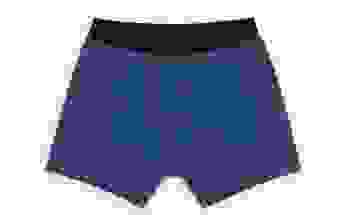
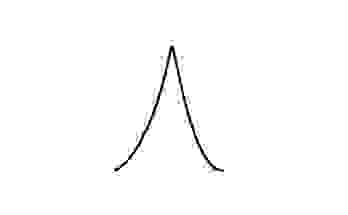

That was a very good review of the pros and cons of Duolingo. I’ve been using it to prep my Portuguese for an upcoming trip, and I do find the framework, with the lingots and hearts, very motivating! Show me a graph and I will kill myself trying to beat yesterday’s score.
I agree, though, that there is something very random about the way this program works. The truth is that I already know a lot of Portuguese words and grammar, from formal classes, and from previous ones in Spanish. Most of the words I’m presented with make me go “Oh, yeah, I knew that one…”. So I kind of understand how the verbs, gender and prepositions work. If I was a blank slate encountering the language for the first time, I don’t know how effective this approach would be.
I guess I will find out when I start German, which is next on the list, since I do not speak one word of that language.
Yeah, it’ll definitely take some Googling. It’s not so bad, though, but I do wish they’d add some more instructional material in addition to the exercises.
Great review on the Russian course! I’ve studied Russian off and on for a few years and probably have forgotten more than I remembered, so if I take this course it’ll definitely be at the advanced beginner level.
My question for you is, what would you think is an appropriate length of time to purchase from Babbel to cover the contents? 3 months? 6 months? It’s hard to gauge based on their limited content (so far), and I’d hate to finish it way early and waste my money.
I was waiting on Duolingo before recommitting to Russian, but you bring up some very good points about how they present their content. Arrgh!
I paid for six months, and finished the whole thing in about one month, and I was probably advanced beginner as well, though I was spending a few hours per day with it. I would probably say three months is plenty, and Russian comes to Duolingo in August of 2015, which is in three months.
Thanks for the review. Just FYI, Duolingo comes out with their Russian course on 9/9/2015. I’m going to focus on it as opposed to babbel. Maybe babbel will develop their Russian course further but I’m not going to pay to find out.
Yeah, and that date was originally August 15th, but they kept pushing it back multiple times. I don’t know why. They could just let me run through the first half of the exercises while they keep building the second half. Obviously that would be an incomplete course, but if you’re giving it away for free and you say so ahead of time, no one’s going to care.
I was on the list to be told when the beta Russian course is released on Duolingo – i was never informed but two weeks ago noticed it was there. I’m pretty sure that release date got pushed back from September? I’m now half-way through and i’m a bit like you – an advanced beginner i guess? You should definitely try it out. It has good bits and bad bits. With some knowledge already i’m finding most of it easy but the parts i struggle with it’s not helping me with (like the conjugating of some tricky verbs and how other words have their ending changed too). I might look into babbel after reading your review and see the minimum i can sign up for. It might be helpful for forcing me to learn more vocab if nothing else!
Yeah, I got started with it when it came out (I don’t think I got the email either), and I enjoy it. They have a lot of grammar explanations, too; when you open up a new set of lessons, you can scroll down to see the explanations. They get pretty technical, but it’s good that it’s there.
Just a thank you for taking the trouble to tell all us would-be linguists about Babbel. Really great in-depth review.
Happy to help!
Thanks for your review !
I live in Russia and I’m looking for a way to improve my russian without taking classes. I had a teacher in the beginning, but unfortunately it’s too restrictive in terms of scheduling, so I need something that I can use whenever I have some time. I started using duolingo but I was wondering if Babbel was a better alternative. It seems for my situation it’s not… I’m lucky enough to be in an environment where I can ask friends and colleagues if I don’t understand a word or a grammar rule, so duolingo seems better!
Although I do agree that the typing in duolingo can be time-consuming in the beginning, one of the things I need to improve is my ability to use a russian keyboard… It’s ok on a phone, but the bilingual cyrillic keyboard is horribly confusing! :p
I suggest starting off with Babbel so you have all the grammar explanations, co, petersburg the 3 beginners’ courses and then move onto duolingo.
This post is about a year old. Does anyone have a sense about whether the Russian course on Babbel has improved in any way? It sounds like the general impression is that the first lessons are of high quality but that the quality diminishes over time. Has that changed?
As we’re three months on, I don’t know if you’re still interested in learning the answer. I have a Babbel subscription to all languages (not widely advertised – you have to email them to get a price), so am able to compare. The Russian course HAS been improved and expanded slightly, since it was launched, with more grammar explanation, AND more content overall. However, compared to the longer-established and, let’s be honest, more popular courses, it’s still very lightweight. In my opinion, it is unfair to charge the same for a Russian only subscription as for German or Italian, as the subscriber to Russian will be overpaying for much reduced content. Also, in my opinion, a drawback of ALL Babbel language courses is that once you have finished the actual course, the endless vocabulary reviews are pretty boring, and even demotivating. The faster you progress through the lessons, the faster vocabulary reviews mount up (I understand that timed reviews will obviously be from the date you first learnt the word, so if you learnt a lot of words the same day or week…)
This meant that during, and even after completion of the course, I was getting literally hundreds of vocabulary words on the queue to review. Because I haven’t attended to it for quite a few months, it’s currently showing my entire Russian vocabulary of about 2500 words as due for review. This is daunting, by anybody’s standards, and, whilst vocabulary knowledge is an important part of any language, neverending vocabulary drill is tedious, and is NOT “learning a language”. When they occasionally introduce new course material, I’m so eager, I’m through it in a couple of days – and then back to the pointless, devoid-of-context vocabulary repetitions.
I have my subscription renewal date approaching soon, and am unsure whether to renew. If I was subscribed to Russian only, I certainly wouldn’t, just for vocabulary reviews, and the chance to redo old lessons. But as I’m subscribed to all languages, it may be worth hanging onto for the chance I’ll do others (I’ve already done Dutch, and refreshed some of my ancient schoolgirl German).
How did you change to the next level after completing the beginner courses? I’m using the app and it’s not on the settings. I can’t wait to see if they made improvements to the other levels since this review. Thank you in advance!
It’s been a while, so I’m not sure of the details on this one…
Are there other Russian courses you recommend? I don’t enjoy Babbel and Duolingo, because I feel that I’m playing games and not learning anything. The first word Babbel tried to teach me in Russian was the name of a flower I didn’t even know existed.
I’m currently using Assimil, and love the idea, but I would prefer a digital course where I can easily copy and paste everything into Anki.
I would recommend just sticking with Duolingo. I have some problems with it as well, but if you stick with it, you’ll be conversational.
Exactly the answer I was looking for. I was curious though- did Babbel make you conversational also?
I tested Babbel’s Russian program, and I was already conversational in Russian, and just using it as a review. It works, but at the time, the Russian program wasn’t especially extensive, but the other languages are, so I’d say it can probably work if you stick with it.
This is a scam! I signed with them for a one month trial for $1.00 on June 2013. They started charging me on July 2013, $44.70 every six months, every January and every July!! That is eight payments, for a total of $357.60, for a program that I have never used!! All my requests for stopping my subscription were ignored! I finally had to block payments. What a scam!! Not a decent way to make money!
That is pretty awful…sorry to hear about that experience, and I’ll leave this comment up here so people can be aware that it was an issue.
Are you talking about Babbel, or Duolingo?
Whichever, did get resolution?
I was just thinking about subscribing to Babbel, for my wife and I both.
Yes they do this, and will continuously charge you as I’ve been reading. You have to block payments from the source (your bank/paypal/etc). But, if you’re willing to do that after you pay the first few months, then go for it.